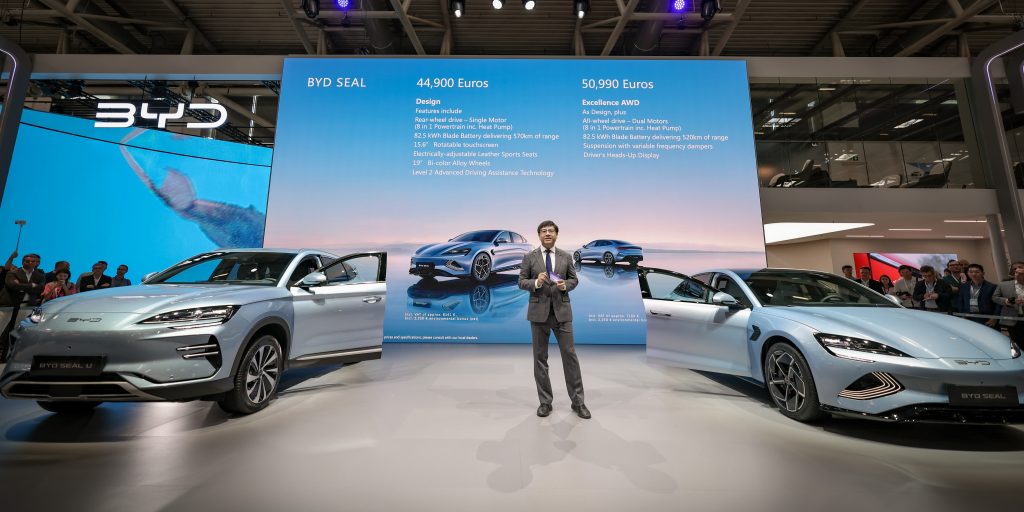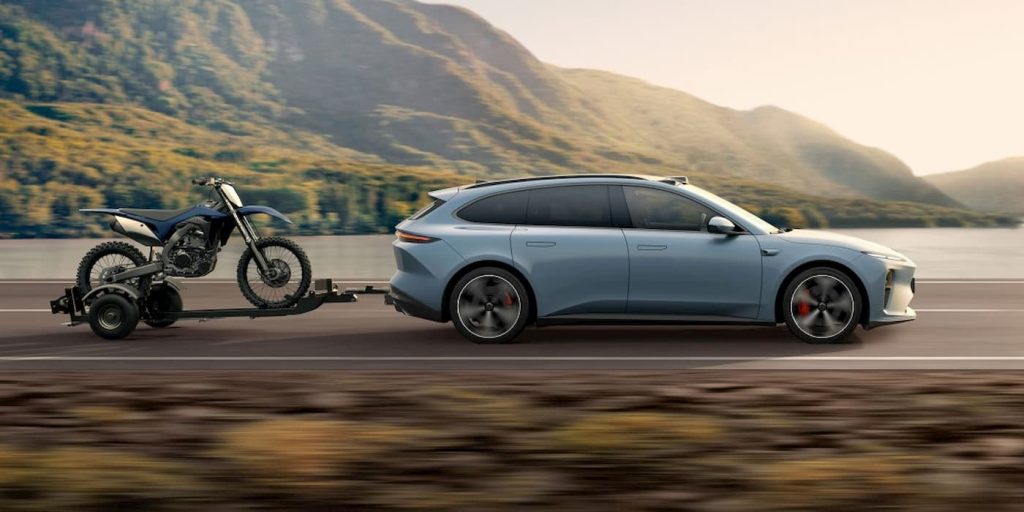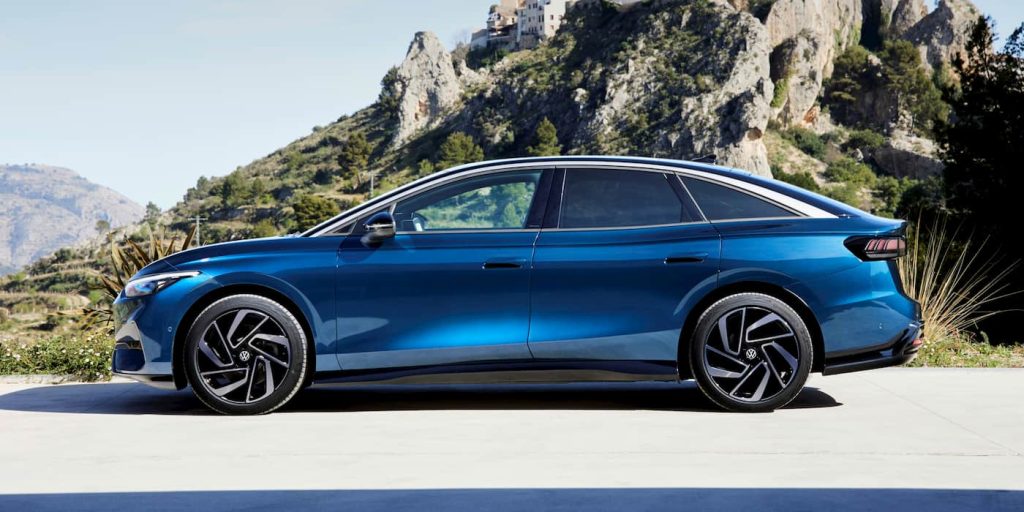
The European Union launched an investigation over Chinese EV subsidies as the global markets are “now flooded with cheaper electric cars.” European Commission President Ursula von der Leyen revealed the probe Wednesday, claiming Chinese EV makers benefit from state subsidies.
The EU probe could lead to potential tariffs, which would likely have significant impacts on the market and Chinese EV makers.
“Global markets are now flooded with cheaper electric cars.” the EU Commission chief said in her annual speech to the European Parliament. “And their price is kept artificially low by huge state subsidies.”
The move comes as electric vehicle imports from China continue gaining momentum in the region.
China’s largest EV makers, like BYD, NIO, and XPeng, are launching models designed for the European market. And so far, it’s working.
New Energy Vehicle (NEV) exports from China rose 63.6% through the first seven months of the year, according to data from the China Association of Automobile Manufacturers (CAAM).
The European expansion was evident at the IAA Mobility show in Munich, with Chinese EV makers doubling their presence compared to 2021. EV leaders, including BYD and SAIC’s MG, unveiled impressive all-electric models aimed at the EU market.

BYD showcased six EVs, including the SEAL electric sedan and SEAL U, designed for European customers. The BYD Seal starts at 45,000 euros (about $48,000) with up to 570 km (354 mi) range.
NIO also launched its ET5 Touring this summer, its first electric station wagon, designed to rival German automakers including Porsche and BMW.

EU probes Chinese EVs over state subsidies
With new models like the SEAL and ET5 Touring rolling out with competitive pricing and often better technology, mass-market automakers like Volkswagen and Stellantis are feeling the pressure.
According to Jato Dynamics (via Reuters), the average retail price of Chinese EVs in Germany was 29% lower than non-Chinese models, excluding incentives and discounts.

The EU is already moving toward a clear future. As part of its Green Deal, the EU approved a law banning the sale of new ICE passenger cars from 2035. The move has accelerated EV sales in the region, but there are concerns over China’s economic practices.
The probe comes as the EU looks to avoid repeating what happened with the solar industry when cheaper Chinese imports squeezed many manufacturers out of the market.
If the EU decides to slap tariffs on Chinese EVs, it would have broader impacts, including brands that build cars in China, such as Tesla, Volvo, Polestar, Renault, and BMW.

The Commission will have up to 13 months to decide to implement tariffs above the 10% standard rate.
Shares of Chinese EV makers, including NIO, Xpeng, and BYD, were down in Wednesday’s trading session following the news.
Electrek’s Take
Although the EU is looking to protect its auto industry from being overtaken by cheaper Chinese EVs, a tariff may have significant impacts on the market.
For one, automakers in Germany rely heavily on China to drive sales revenue. Volkswagen has generated nearly half of its revenue from China, but the automaker is losing out to domestic EV makers as the EV transition heats up.
BYD surpassed VW as China’s top-selling car brand for the first time earlier this year. Meanwhile, Volkswagen has already slashed prices in the region in a bid to even the playing field, but how long can this go on?
Europe’s largest automaker also recently made several partnerships in the region to advance its position, including a $700 million investment into XPeng.
The biggest issue facing the EU is that many of these Chinese EVs are built better with superior technology and designs. While many European automakers delayed the transition to electric, EV makers like BYD and NIO took advantage of it, accelerating development and production.
NIO’s CEO William Li warned about the possibility of “protectionist policies” in April due to their cost advantages.
Author: Peter Johnson
Source: Electrek



